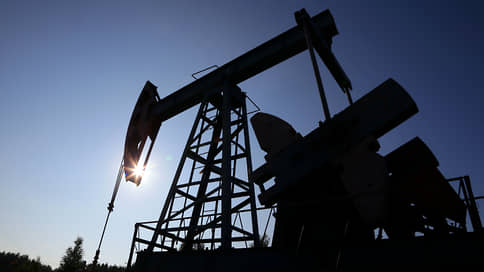Production comes true – Newspaper Kommersant No. 24 (7469) dated 02/09/2023
[ad_1]

According to Kommersant’s information, despite the EU embargo on Russian oil and oil products, the Russian oil industry continues to increase production. Thus, in the first week of February, oil companies increased production by almost 1% compared to the average level in January. At the same time, production was 1% below the level of February 2022. The growth in production is explained by the fact that oil companies, under sanctions, prefer to increase exports by providing large discounts.
Oil companies in the first week of February increased the production of raw materials in Russia by 0.7%, to 1.491 million tons per day (compared to the average level in January). Thus, a little less than a year after the introduction of sanctions for the outbreak of hostilities in Ukraine, Russian oil companies only approached the pre-sanction level of production. Thus, in February last year, oil companies produced an average of 1.508 million tons per day.
The most rapid production growth is observed at Sakhalin-1, which by June, according to the estimates of one of the shareholders of the Indian ONGC project, should increase production to 200 thousand barrels per day from about 163 thousand barrels per day in February (an increase of more than 20% ). Rosneft has not yet reached the planned volumes, “but we are raising production,” the head of the oil company, Igor Sechin, said this week.
Last spring, Russian oil companies were forced to reduce production amid Western sanctions that led European buyers to refuse offshore oil shipments. In May, the EU imposed blocking sanctions against Rosneft and Gazprom Neft. However, oil companies gradually redirected European volumes to Asian countries, mainly to India.
Now the Russian Federation continues to increase production despite the embargo of the European Union on Russian oil that came into force on December 5 last year.
At the same time, since February 1, the Russian authorities have banned companies from sending oil for export if there is a condition in the contracts on the oil price ceiling, which was set simultaneously with the embargo at $60 per barrel. However, the price of the main Russian grade of oil Urals in January decreased by 1.7 times compared to the same month last year, to $49.5 per barrel. This led the authorities to discuss changing the methodology for calculating oil prices for tax purposes (see “Kommersant” dated February 3).
Since February 5, Western countries have begun to apply a price ceiling for oil products from the Russian Federation, setting it at $100 per barrel (for gasoline and diesel fuel) and $45 per barrel (for fuel oil). At the same time, the EU, the largest buyer of Russian oil products, imposed an embargo on them, as before on oil. But so far, the significant impact of this measure on oil refining in Russia is not noticeable. “As for the embargo on oil products and the price ceiling that were introduced, the volumes for the month of February have been placed. We will certainly look at how the situation will develop in this part from March,” Deputy Prime Minister of the Russian Federation Alexander Novak noted on February 8.
The stability of Russian oil production is associated with high discounts that allow you to maintain high physical volumes of exports, says Sergey Kondratyev of the Institute of Energy and Finance: sea exports remain at the highest levels in the last six months, offsetting the decline in supplies through the Druzhba pipeline.
“At the same time, refineries also appear to be keeping their refining at a high level due to stable demand in the domestic market and the redirection of supplies of petroleum products to the Middle East and Asia,” the expert admits.
However, in the coming months, the Russian Federation may face a scenario in which refining volumes will decrease. At the same time, diesel refineries can at least maintain the current volume of fuel output, since the current crack spread (the difference between the price of oil and the basket of petroleum products received) allows many export refineries to feel quite well, Mr. Kondratyev believes. According to him, logistics and the search for new partners in local markets remain the key risk, however, in February-March 2023, the decline in refinery output is likely to be less than previously expected and will not exceed 0.1-0.15 million barrels per day .
[ad_2]
Source link





